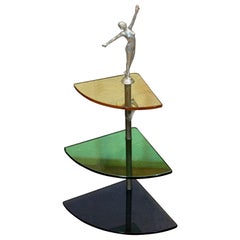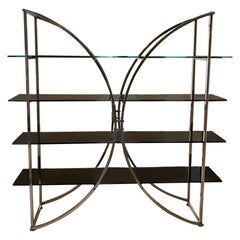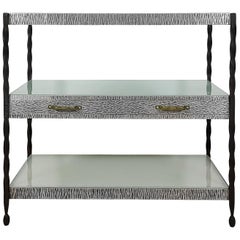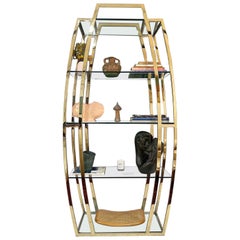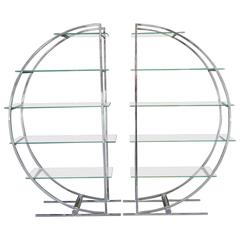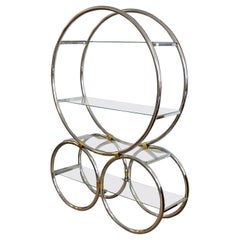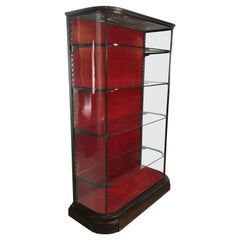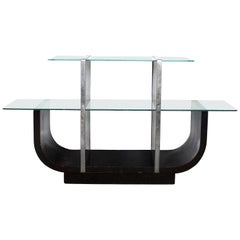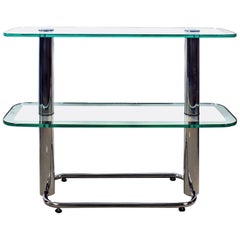Art Deco Glass Shelving
Vintage 1930s Unknown Art Deco Shelves and Wall Cabinets
Art Glass
Vintage 1960s French Art Deco Shelves
Chrome
Vintage 1920s French Art Deco Shelves
Metal, Brass, Wrought Iron
Vintage 1980s Unknown Art Deco Shelves
Brass
Vintage 1930s French Art Deco Bookcases
Chrome
Vintage 1940s American Art Deco Shelves
Chrome
Vintage 1920s American Art Deco Vitrines
Nickel
Vintage 1930s Spanish Art Deco Bookcases
Metal
Vintage 1930s Spanish Art Deco Shelves
Brass
Vintage 1970s German Art Deco Shelves
Chrome
Vintage 1980s Belgian Art Deco Shelves
Gold Plate
20th Century French Mid-Century Modern Carts and Bar Carts
Ormolu, Iron
Vintage 1930s European Art Deco Shelves
Chrome
Vintage 1960s French Art Deco Shelves
Chrome
Vintage 1940s American Art Deco Shelves
Glass, Walnut
Late 20th Century French Art Deco Shelves
Acrylic
Vintage 1970s American Art Deco Shelves
Brass
Art Deco Glass Shelving For Sale on 1stDibs
How Much is a Art Deco Glass Shelving?
Finding the Right Case Pieces And Storage Cabinets for You
Of all the vintage storage cabinets and antique case pieces that have become popular in modern interiors over the years, dressers, credenzas and cabinets have long been home staples, perfect for routine storage or protection of personal items.
In the mid-19th century, cabinetmakers would mimic styles originating in the Louis XIV, Louis XV and Louis XVI eras for their dressers, bookshelves and other structures, and, later, simpler, streamlined wood designs allowed these “case pieces” or “case goods” — any furnishing that is unupholstered and has some semblance of a storage component — to blend into the background of any interior.
Mid-century modern furniture enthusiasts will cite the tall modular wall units crafted in teak and other sought-after woods of the era by the likes of George Nelson, Poul Cadovius and Finn Juhl. For these highly customizable furnishings, designers of the day delivered an alternative to big, heavy bookcases by considering the use of space — and, in particular, walls — in new and innovative ways. Mid-century modern credenzas, which, long and low, evolved from tables that were built as early as the 14th century in Italy, typically have no legs or very short legs and have grown in popularity as an alluring storage option over time.
Although the name immediately invokes images of clothing, dressers were initially created in Europe for a much different purpose. This furnishing was initially a flat-surfaced, low-profile side table equipped with a few drawers — a common fixture used to dress and prepare meats in English kitchens throughout the Tudor period. The drawers served as perfect utensil storage. It wasn’t until the design made its way to North America that it became enlarged and equipped with enough space to hold clothing and cosmetics. The very history of case pieces is a testament to their versatility and well-earned place in any room.
In the spirit of positioning your case goods center stage, decluttering can now be design-minded.
A contemporary case piece with open shelving and painted wood details can prove functional as a storage unit as easily as it can a room divider. Alternatively, apothecary cabinets are charming case goods similar in size to early dressers or commodes but with uniquely sized shelving and (often numerous) drawers.
Whether you’re seeking a playful sideboard that features colored glass and metal details, an antique Italian hand-carved storage cabinet or a glass-door vitrine to store and show off your collectibles, there are options for you on 1stDibs.
- 1stDibs ExpertApril 5, 2022Yes, stained glass windows are indeed Art Deco. Between the 1920s and 1950s, color was an integral part of the movement, and stained glass, with its gorgeous hues, was highly celebrated. Find an assortment of stained glass windows from some of the world’s top sellers on 1stDibs.
